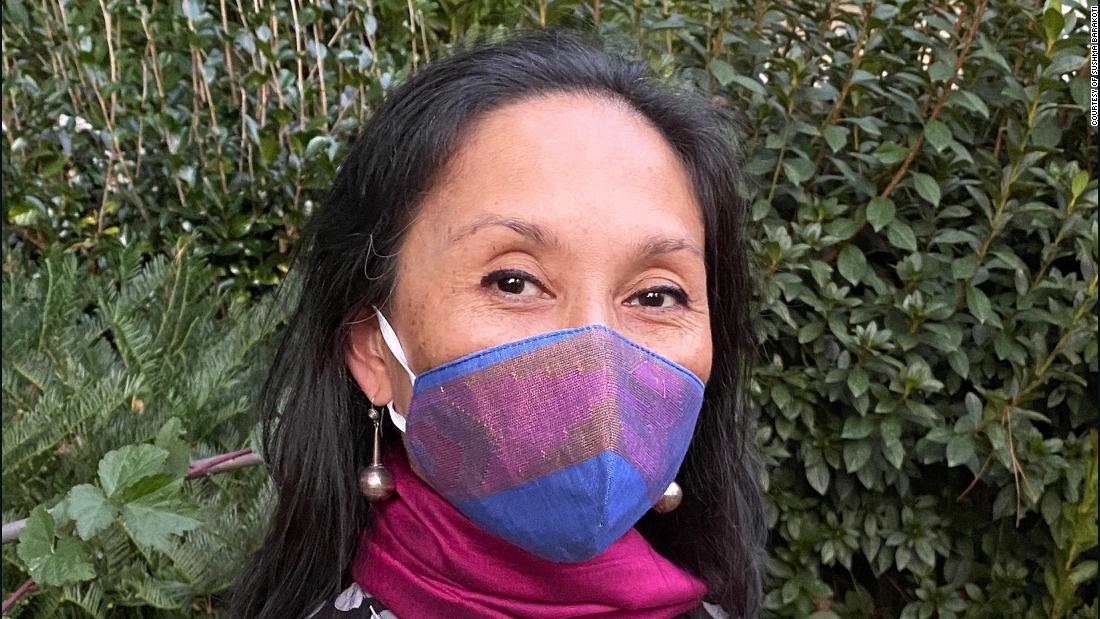
Twenty years ago, I came to the US from the Himalayan country of Nepal to pursue my master's in social work. After graduation, I worked as an advocate for survivors of gender-based violence in Scranton, Pennsylvania.
Although I was eligible to apply for US citizenship in 2012, it was not a priority for me at that time.
My work in the community, particularly to advance women's empowerment in northeast Pennsylvania and in Nepal, was my main focus.
When my husband got a promotion, we relocated to Atlanta.
Immediately, I found my community and went to work doing what has been a cornerstone of my career for two decades: helping marginalized communities. I started volunteering my time to support refugees from Bhutan, as we share the same language and culture. In 2013, I founded a social enterprise called Sunavworld, LLC to promote fairly traded products made by grassroots women's organizations from Nepal.
Sunavworld, is my connection to Nepal. And looking back, perhaps getting the US citizenship was not so urgent for me because I was seeing the positive impact my work was having on communities right in front of me.
When 2016 arrived, I was excited about the candidacy of Hillary Clinton, the first major party woman nominee for president in the US. I volunteered to get out the vote among immigrants and refugee citizens, and even signed up to be a poll monitor.
After the election, my excitement soon turned to activism when the new administration implemented the family separation policy on the southern border, deepened racial and cultural divides and put a travel ban on several countries, most of which are predominantly Muslim.
Here, I was working with many Muslim refugees and immigrants who were here fleeing atrocity and injustice in their countries, and I knew this ban would hurt these families.
More and more policies directly affected my family, community and the people served through my work. By 2017, I was leading the Refugee Women's Network, a nonprofit organization working with refugee and immigrant women and their families in collaboration with organizations like Latino Community Funds. The administration's policies toward immigrants and refugees motivated me and my husband to apply for US citizenship.
I became a citizen in December 2017. At the swearing-in ceremony, they give you the option to register to vote right there. I didn't hesitate, and I have been voting in every state and local election since.
Becoming a citizen and registering to vote was my resistance to the way things were going in this country.
This year, on the day Georgia started accepting requests for absentee ballots, I requested mine. The state is one of the many where you have to put your ballot in a private or secrecy envelope before you put it in the return envelope, otherwise it will be disqualified. I used my ballot to educate others in the community on how to fill out and send them in correctly.
But instead of using my mail in ballot, I handed it in to a poll worker to properly discard it and voted early in person at my neighborhood polling place.
I wanted to have a backup plan. This election is very important to me, and I needed to vote as if my life depended on it. The presidential election is not only important for the people in the US but, because the country is seen as a global leader, for people around the world.
"Opinion" - Google News
November 03, 2020 at 04:51AM
https://ift.tt/2TLdstM
First-time voter: I needed to vote as if my life depended on it - CNN
"Opinion" - Google News
https://ift.tt/2FkSo6m
Shoes Man Tutorial
Pos News Update
Meme Update
Korean Entertainment News
Japan News Update
No comments:
Post a Comment